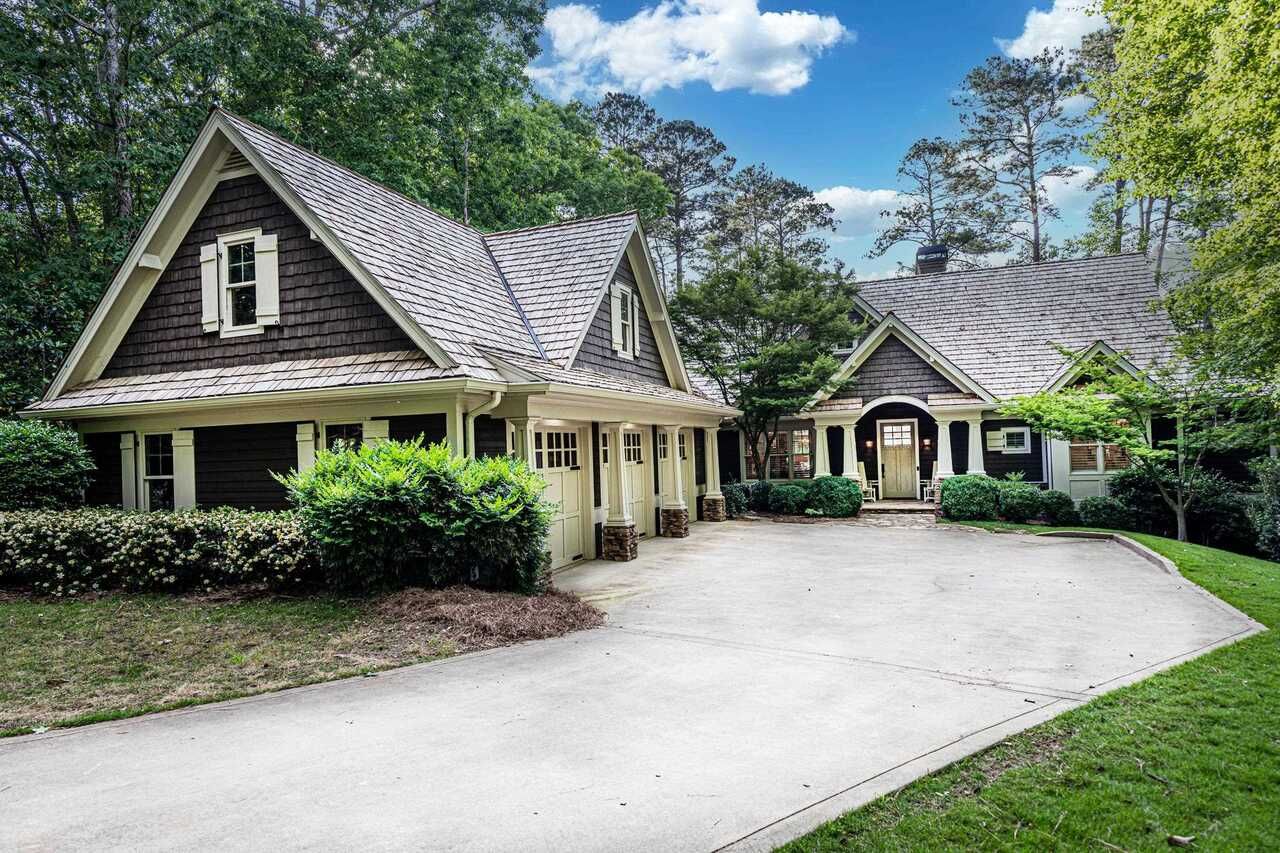Homes For Sale In Greene County Ga – When everything becomes a transaction, we risk losing sight of what truly matters. They become part of the story of the buyer and the creator, connecting people to a tradition of excellence, heritage, and care. Despite the many advantages of buying and selling second-hand goods, there are some challenges that both buyers and sellers must navigate. It carries with it a deep sense of commodification — the idea that every part of our lives, every piece of our history, every corner of our existence, has a price attached to it. A new smartphone, for example, can cost hundreds of dollars, but buying a used one can cut the price down by more than half. From designer labels to quirky, eclectic finds, second-hand clothing offers a wealth of variety and style at a fraction of the price of new items. Many quality goods are made by artisans or small businesses who take the time to create products that reflect their expertise and passion. As society has evolved, the scale of production has expanded, and many quality goods are now mass-produced or distributed through large retail chains. The promise of success in a marketplace driven by capitalism can be an illusion for those who don’t have the resources or opportunities to compete on equal footing. Books, records, and collectibles are also highly sought after in the second-hand market. In some cases, sellers may be willing to offer financing options, where they agree to receive payment over time, which can make the business more attractive to potential buyers. A business for sale is not always as it appears on the surface, and the buyer must examine the company’s financial statements, contracts, debts, and even its customer relationships before deciding whether to proceed with the transaction. The appeal of finding a hidden gem, something that has been cherished by someone else and is now available for a new owner, is a part of the allure of second-hand goods. For example, an old wooden chair might be sanded down and refinished into a modern piece of furniture, or a vintage dress might be altered to fit a contemporary style. There’s a certain art to selling something. By buying second-hand goods, consumers can feel good about supporting their communities and giving back to those in need. Similarly, in relationships, individuals may feel as though they are selling themselves, presenting their best qualities and hoping for the best outcome. In this world, emotions can feel like products, available to be consumed at will and disposed of when they no longer serve a purpose. The sale agreement will include details about the purchase price, payment terms, assets being transferred, and any contingencies that may apply. Thrift stores often carry a wide variety of goods, from clothing and accessories to furniture, books, and electronics, and each item comes with its own story.

Greene County, GA Real Estate & Homes for Sale
View property flood risksdraw your own search areaview local noise levels Find real estate agentsexclusive home listingsfsbo & mls listings See crime & noise scoresfind highly rated schoolsopen house & tour info

0.86 acres in Greene County,
Find real estate agentsexclusive home listingsfsbo & mls listings See crime & noise scoresfind highly rated schoolsopen house & tour info View property flood risksdraw your own search areaview local noise levels

Greene County, GA Real Estate & Homes for Sale
See crime & noise scoresfind highly rated schoolsopen house & tour info View property flood risksdraw your own search areaview local noise levels Find real estate agentsexclusive home listingsfsbo & mls listings

0.72 acres in Greene County,
Find real estate agentsexclusive home listingsfsbo & mls listings See crime & noise scoresfind highly rated schoolsopen house & tour info View property flood risksdraw your own search areaview local noise levels

0.86 acres in Greene County,
Find real estate agentsexclusive home listingsfsbo & mls listings See crime & noise scoresfind highly rated schoolsopen house & tour info View property flood risksdraw your own search areaview local noise levels

Greensboro, Greene County, GA House for sale Property ID 339075694
See crime & noise scoresfind highly rated schoolsopen house & tour info View property flood risksdraw your own search areaview local noise levels Find real estate agentsexclusive home listingsfsbo & mls listings

Greensboro, Greene County, GA House for sale Property ID 335400027
Find real estate agentsexclusive home listingsfsbo & mls listings View property flood risksdraw your own search areaview local noise levels See crime & noise scoresfind highly rated schoolsopen house & tour info

Greensboro, Greene County, GA House for sale Property ID 336118870
Find real estate agentsexclusive home listingsfsbo & mls listings See crime & noise scoresfind highly rated schoolsopen house & tour info View property flood risksdraw your own search areaview local noise levels

9 acres in Greene County,
View property flood risksdraw your own search areaview local noise levels See crime & noise scoresfind highly rated schoolsopen house & tour info Find real estate agentsexclusive home listingsfsbo & mls listings

Greensboro, Greene County, GA House for sale Property ID 336939755
View property flood risksdraw your own search areaview local noise levels Find real estate agentsexclusive home listingsfsbo & mls listings See crime & noise scoresfind highly rated schoolsopen house & tour info
Similarly, a quality suit made from fine wool will age gracefully, developing a patina that speaks to its craftsmanship. But in reality, even the most profound relationships can be commodified in some way. While the sale of a business can provide a valuable opportunity for both parties involved, it also carries risks. There’s a certain art to selling something. The object becomes more than just an object – it transforms into a transaction, an exchange of value. This typically involves drafting and signing a sale agreement, which outlines the terms and conditions of the transaction. This pride comes not just from the product itself, but from knowing that you are supporting a tradition of craftsmanship and care. When you look at something marked as “for sale,” you’re not only seeing an item; you’re seeing the possibility of a change, whether it’s the beginning of a new ownership, the end of a relationship with an object, or simply the result of a decision to move forward. Due diligence is a crucial part of the process, where the buyer investigates the business thoroughly to ensure that there are no hidden liabilities, potential risks, or operational inefficiencies. The idea of “buying quality” is not just a luxury; it’s a mindset that encourages consumers to think beyond the momentary gratification of cheap purchases and focus instead on long-term value and satisfaction. Websites like eBay, Craigslist, Facebook Marketplace, and Poshmark have made it easier than ever for individuals to sell their unwanted items and for buyers to find exactly what they are looking for. With the rise of e-commerce, the accessibility of quality goods for sale has expanded exponentially. Even objects with little intrinsic value can be sold with great meaning. There are those who argue that not everything should be for sale. Economic downturns, for example, can influence the types of businesses that are put up for sale, as struggling companies may look to exit the market. There is also a growing trend of upcycling and repurposing second-hand goods, where items that may no longer serve their original purpose are transformed into something new and useful. A new smartphone, for example, can cost hundreds of dollars, but buying a used one can cut the price down by more than half. Social media platforms, for example, offer users a chance to buy into their own identity, to curate a version of themselves that is more appealing, more desirable, more marketable. This is particularly important in a world where design has become a central element in consumer decision-making. For some, selling something may feel like a sacrifice, while for others, it may feel like an investment in their future.
People are not just looking for things that work well; they want products that elevate their environment and their experiences. If the buyer is satisfied with the findings, the next step is usually negotiation. This sense of history and individuality is part of what makes second-hand shopping so appealing. Whether someone is looking to sell their business as part of a strategic decision or to retire, or whether a potential buyer is seeking an opportunity to invest in an established company, the process of buying and selling businesses is a common yet intricate part of the global economy. Are there things that should be kept beyond the realm of trade? Or has the marketplace — with its insatiable demand and promise of exchange — seeped into every facet of our being?
If everything is for sale, then the concept of value itself becomes fluid, subjective, and often manipulated. Sellers often find themselves in a strange position, balancing the emotional attachment to the item with the rational need to let it go. Self-help books and motivational speakers promise to sell us the tools to fix ourselves, to buy into a better version of who we could be. Moreover, buying second-hand items allows consumers to access unique and vintage products that may no longer be available in stores, offering a sense of individuality that is often missing from mass-produced, new items. Whether buying vintage clothing, upcycled furniture, or pre-owned electronics, the growing popularity of second-hand shopping reflects a broader desire for more sustainable, creative, and conscious ways of living. The market for second-hand goods is also influenced by societal trends and economic conditions. For those on the outside looking in, the idea of acquiring an existing business might seem both enticing and overwhelming. Thrift stores, estate sales, and online marketplaces are excellent places to find second-hand furniture, with options ranging from antique and vintage pieces to more contemporary items. Many buyers are drawn to industries where they already have experience, while others may seek a business in an entirely new field in order to diversify their portfolio. This connection between consumers and the creators of quality goods is something that’s been fostered for centuries. In conclusion, second-hand goods for sale represent more than just a financial transaction; they embody a shift toward sustainability, individuality, and social responsibility. This sense of connection can also extend to the broader culture of quality goods, where consumers and creators share a commitment to excellence and a desire to preserve the craft and tradition behind these products. When an item is marked as “for sale,” it enters a space where value is defined not only by the object itself but by the context in which it’s placed. We are all participants in a vast, interconnected economy, one that doesn’t just involve physical goods but extends to ideas, relationships, and even identities. Cars, too, are often sold with a sense of transition. For environmentally conscious consumers, buying second-hand is not just a cost-effective choice, but a way to make a positive contribution to the planet.